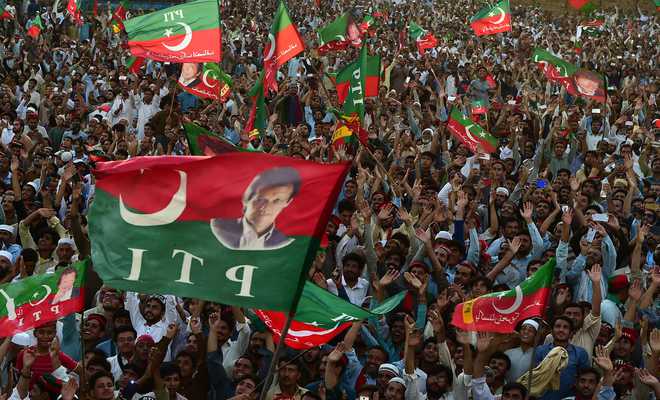
TO Pakistan’s credit, the forthcoming general election will be a record in its national life. This is the first time the country will have a third successive tryst with elections without an interruptive interregnum by its army. That in theory should have sufficiently empowered the democratic institutions to achieve a balance of power with the security agencies which, in turn, should have ensured their equal say in defining the country’s policies, especially in areas of acute concern to India: foreign policy regarding Kashmir. But the apex court’s blackballing of Nawaz Sharif and his daughter from the electoral fray suggests that the military has made the former Prime Minister pay for his forays to repair ties with India.
Yet Pakistan’s electoral arena is alive with several possibilities due to the fractured ethno-linguistic positioning of the customary contestants — the Sharifs, the Bhuttos and Imran Khan along with the possibility of participation by the flag-bearers of militant Islam. The army is prominently in the mix: to thwart the Sharifs and Bhuttos and implicitly side with proponents of national cohesion to perpetuate its ideology of achieving strategic depth in Afghanistan and keeping the pressure on India on Kashmir. India currently does not figure as a major electoral issue but the Deep State’s extent of support to the contestants will be defined by their approach to India. The Pakistan army has always detected an unwelcome autonomy whenever its civilian leadership responds to India’s peacemaking reachout.
But the election has several twists and turns left. An Imran Khan victory may swing the political pendulum towards the army. India could derive some measure of comfort because of the resultant politico-military synergy bringing back a whiff of the later years of the Musharraf regime. However, the structural duality in Pakistan’s polity will persist if Nawaz Sharif’s resolve to return to the country enlarges his vote catchment area. If his party falls short of a majority, Sharif’s travails with the military might encourage the Bhuttos to lend the required numbers. The military is not keen on repeating Pakistan’s 20-year cycle of seizing power but its duality of control will keep the pot boiling.


























